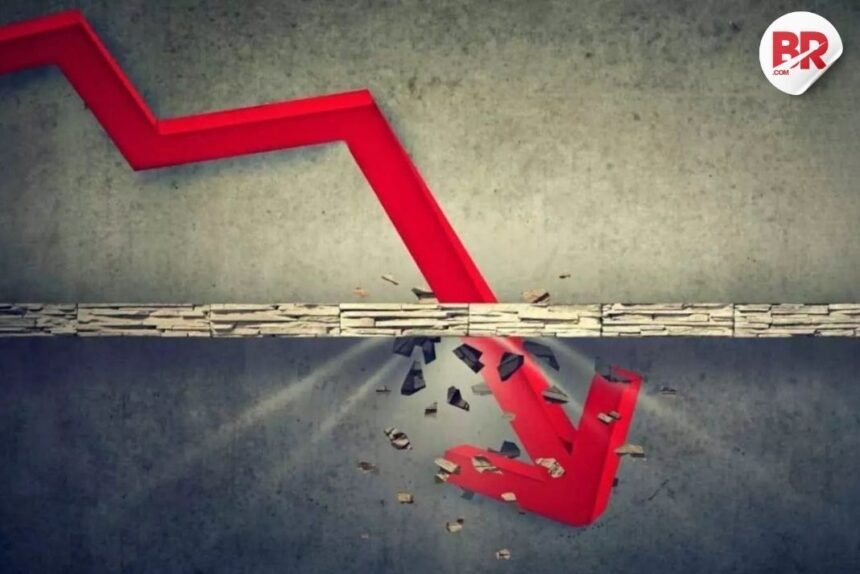The Indian stock market has seen a sharp drop recently, with both the Sensex and Nifty experiencing significant declines. Investors and analysts have started drawing comparisons to one of the most infamous days in financial history – Black Monday, October 19, 1987. On that day, the global markets witnessed one of the worst single-day crashes ever recorded. The Dow Jones Industrial Average plunged by 22.6%, leaving the world in shock. Fast forward to today, and we’re seeing similar signs of market turmoil, leaving many wondering – are we seeing history repeat itself?
The 1987 Crash: A Wake-Up Call for Investors
Black Monday wasn’t just a U.S. event; it affected markets across the globe, including India. The crash caught many investors by surprise. There wasn’t an immediate economic collapse or any geopolitical event to trigger the sell-off. Instead, a combination of overvalued stocks, panic selling, and the rise of automated trading strategies led to the massive drop in stock prices. Investors were left stunned, scrambling to understand what had happened.
The Current Market Turmoil
Now, in 2025, the situation seems eerily familiar. The global stock markets, including India’s Sensex and Nifty, have plunged due to concerns about inflation, rising interest rates, and growing economic uncertainty. Much like the 1987 crash, fear and panic are driving investors to sell off their stocks. This has created a domino effect, causing significant losses on a global scale.
The recent drop in the Indian markets has sparked fears that the country might be heading into a financial crisis. While the reasons behind the current downturn differ from 1987, the parallels are hard to ignore. The global economy today faces challenges such as trade tensions, inflation, and economic slowdown, much like the issues faced during the 1987 crash. But there’s one thing that stands out: both events have been amplified by the rise of automated trading, which can accelerate market declines.
Also Read: Stock Carnage on Dalal Street: ₹19 Lakh Crore Wealth Lost in Hours
Key Lessons from 1987
Despite the panic that gripped the markets in 1987, history offers us some valuable lessons. The biggest takeaway is that market crashes, while painful in the short term, do not last forever. Those who held onto their investments during the 1987 crash saw the markets bounce back within two years.
This recovery shows the importance of maintaining a long-term investment strategy. When the market goes through a downturn, it’s easy to get caught up in the fear of losing money. But those who remain calm and stick with their investments are often the ones who benefit when the market eventually recovers.
What Should Investors Do Now?
In the current environment, investors must be cautious but also strategic. Here are some key takeaways to keep in mind:
-
Stay Diversified: Diversification helps reduce risk, especially during times of market volatility. A well-diversified portfolio can help protect you from large losses when one sector is hit hard.
-
Don’t Panic Sell: One of the biggest mistakes investors make during a market downturn is selling out of fear. Panic selling often locks in losses and prevents you from benefiting from a market rebound.
-
Focus on the Fundamentals: Look for companies with strong fundamentals. Businesses that have solid earnings, low debt, and strong management are better positioned to weather economic storms.
Also Read: China Strikes Back: New Tariffs Spark Fears of a Full-Blown Trade War
Conclusion: Is History Repeating Itself?
While it’s tempting to compare the current market crisis to the 1987 crash, the global economy today is much different. There are more regulations in place, and market structures have evolved. However, one thing remains clear – the fear and panic that fuel these market sell-offs are still present.
As investors, the best approach is to stay informed and avoid knee-jerk reactions. The key to navigating market volatility is to remain calm, focus on long-term goals, and make decisions based on sound investment principles. While the recent market downturn may feel overwhelming, remember that with patience and strategy, markets have a way of recovering.
Also Read: Markets Rattle as Trump Floats New Tariffs but Leaves Door Open to Talks




